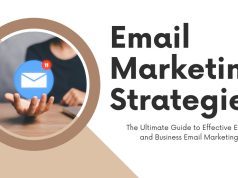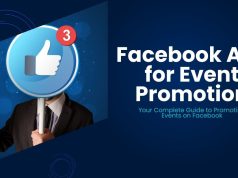Event marketing is a standard choice for marketers’ strategies in fact, it has been around for decades. But with technology continually remaking changes in what is played or heard and audience expectations that have also changed, the shape of this field goes beyond just rebranding according to new trends in the market. From hybrid events to gamification and data-driven personalization, businesses are having a new breakthrough in the way they plan, execute, and promote events.
Why Stay Ahead of Event Marketing Trends?
Event marketing isn’t just about creating unforgettable moments. It is an important tool for creating brand awareness, establishing industry authority, getting leads, and maintaining long-term customer relationships. But businesses that rely on out-of-date marketing strategies find themselves unable to keep up with the competition. They are disconnected from their audience. By keeping up with the latest trends in event marketing, you don’t have to be just another tree hidden in the forest. In fact, the campaigns you especially craft will have more meaning for participants and greater engagement ROI.
Emerging Event Marketing Trends to Watch
The following trends highlight the innovations and shifts that are making waves in the event marketing sphere.
Hybrid Events Are Here to Stay
While in-person gatherings are making a post-pandemic comeback, hybrid events, which combine both physical and virtual components, have firmly cemented their place within the marketing ecosystem. These events offer unparalleled flexibility, allowing attendees to join from anywhere while maintaining the personal connection of live interactions.
Why Hybrid Events Work:
- Wider Reach: By providing both in-person and virtual options, businesses can reach a global audience.
- Cost-Effectiveness: Participants save on travel and accommodation, making events more accessible.
- Enhanced Audience Engagement: Features like live polls, virtual networking, and chat functions keep virtual attendees engaged in real-time.
How to Incorporate Hybrid Events:
- Use virtual event platforms like Hopin or Airmeet, which have features built specifically for hybrid experiences.
- Invest in high-quality streaming equipment to ensure the virtual component of your event feels polished and professional.
- Offer exclusive breakout sessions, downloadable resources, or networking opportunities for both in-person and online audiences.
Personalization Through Data
One-size-fits-all marketing won’t cut it when today’s consumers expect tailored experiences that match their individual preferences. Data-driven personalization is revolutionizing how marketers connect with event attendees by tracking user behavior, analyzing preferences, and leveraging attendee feedback to customize every aspect of the experience.
Ways Data Personalization is Used in Event Marketing:
- Dynamic content delivery, such as personalized session recommendations based on user interests.
- Custom email invitations segmented by audience demographics or location.
- AI-powered chatbots to provide attendees with personalized event information, such as venue directions or session schedules.
Tools that Can Help:
- CRM platforms like HubSpot or Salesforce to track attendee interactions.
- AI integration tools like Pathable to streamline personalized event communication.
Focus on Sustainability
With growing environmental concerns, sustainability has become a critical component of modern event marketing. Many businesses are integrating eco-friendly practices into their campaigns not just to reduce waste but also to align with consumer values.
Sustainable Event Practices:
- Swap out paper registration forms with digital event tickets and QR code check-ins.
- Use local vendors and sustainable catering services.
- Promote a “green event” initiative by offering reusable merchandise or eco-friendly swag bags.
Immersive Experiences and Gamification
Creating immersive, interactive experiences at events is a surefire way to captivate audiences and generate buzz. Gamification, in particular, is proving to be a game changer in boosting attendee engagement.
Gamification in Event Marketing:
- Introduce event apps with leaderboards, scavenger hunts, or challenges to encourage participation.
- Offer rewards or giveaways for completing activities, interacting on social media, or visiting exhibitor booths.
- Use technology like AR or VR for exciting, hands-on demonstrations of your products or services.
AI and Advanced Event Tech
Artificial intelligence and event technology are streamlining the planning process and improving attendee experiences like never before. AI applications can be found in areas such as event planning, content generation, and post-event data analysis.
AI Applications in Events:
- AI chatbots for real-time customer service.
- Predictive analytics to forecast attendee turnout and optimize event schedules.
- AI-assisted marketing creation for generating social media posts or email copy quickly.
Event platforms like Cvent and EventMobi are increasingly incorporating AI capabilities to help event organizers plan and promote seamlessly.
Community Building
Successful event marketing no longer ends when the event concludes. Creating a sense of community is becoming a major focus, encouraging ongoing engagement and rapport with attendees well after the event is over.
Tips for Fostering Community:
- Host post-event Q&A or webinar follow-ups to keep the discussion going.
- Use private Facebook or LinkedIn groups to connect attendees and share updates.
- Celebrate attendees by featuring testimonials, social posts, or event photos on your website.
How to Adapt Your Event Marketing Strategy
Adapting to these evolving trends doesn’t mean overhauling your entire strategy overnight. Start small by experimenting with new trends and tools, and measure the impact of your efforts.
Here’s a step-by-step guide to help you get started:
- Define Your Goals: Be specific about what you hope to achieve with your event marketing efforts (e.g., increased attendance, higher engagement, improved brand awareness).
- Leverage Technology: Incorporate tools like AI platforms, hybrid event software, and gamified apps to test their impact.
- Focus on Storytelling: Humanize your event marketing by aligning with a compelling message or purpose that resonates deeply with your audience.
- Monitor Metrics: Use analytics to assess event performance and attendee engagement. Adjust your approach as trends shift or new tools emerge.
Your Event Marketing Edge
It’s an exciting time to be in the world of event marketing. With innovations like hybrid events, tailored personalization, and AI-assisted technologies at your fingertips, creating impactful campaigns has never been easier. By staying informed about emerging trends and embracing a forward-thinking approach, you’ll set yourself apart as a leader in the industry.
Want to gain an edge in your event marketing strategy? Take the next step by visiting our blog for more insights and tools. Don’t forget to share your event success stories in the comments below!









